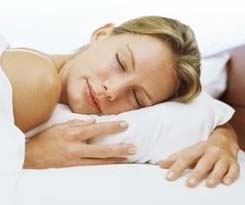
Sleep is essential for our overall health and well-being. We can last for two weeks without food, but we cannot survive more than ten days without sleeping. A number of important bodily processes happen while we sleep and when we do not get enough of it, these processes are left incomplete.
There are many reasons why people do not get the amount of sleep their body needs. It could be due to anxiety or stress. There could be some underlying health conditions that trigger Chronic Insomnia. Some stay awake for days because of work or school.
Lack of sleep can cause some serious health complications. It can even cause death. And then there is the high likelihood of experiencing hallucinations when you sense things that are not physically there.
So how long do you need to stay awake before serious complications like hallucinations kick in?
Contents
What happens after 3 days without sleep?
You’ve most likely gone through some nights when you slept less than the recommended 7 to 8 hours of sleep. Chances are you’ve encountered the usual morning grogginess and the general feeling of fatigue.
But what happens when you are unable to sleep for longer hours or even days?
36 Hours Without Sleep
A day and a half of not getting any sleep will trigger more pronounced effects on your body, particularly your brain.
By this time, you would have already experienced some deterioration in your coordination. Your brain will start to struggle just to perform what would normally be easy tasks and you will experience some memory lapses.
As you add more hours without sleep, your judgment starts to suffer as your ability to focus gets impaired. Your overall reactions at this stage can be compared to those of a person with a blood alcohol level of 10%.
72 Hours Without Sleep

At this point, your body will start to fight back. Every so often you will fall into microsleeps — short episodes of sleep which last from a few seconds to about half a minute.
These small blackouts can be very dangerous and you will not even be aware that they are happening. The disorientation that follows these episodes may lead to serious accidents.
After three whole days without sleep, you will have significant loss of motivation, concentration, and perception. Talking becomes difficult as your motor responses become unstable.
You become highly irritable and easily agitated. You develop false memories of things and activities that did not actually happen.
96 Hours Without Sleep
This is the period when hallucinations come into the picture.
After four days without sleep, you start having psychosis making it difficult to distinguish between what is real from what is not.
You lose grasp of your external reality as your brain switches on and off. Your organs begin to lose some of their functions.
5 Days And Beyond Without Sleep
Very few people are able to stay awake after 5 straight days.
At this point, your ability to think rationally is severely affected. You become increasingly frightened and paranoid. Your speech slows down considerably and your vision becomes seriously impaired. You may start experiencing limb tremors (involuntary shaking).
Soon you will encounter severe memory lapses and will begin to manifest strange behaviors. Depression will kick in thereafter which may lead to insanity.
At this stage, even if you are able to go back to a normal sleeping pattern, the negative effects may persist long after you have corrected your sleep habits.
What are the most common types of hallucinations from sleep deprivation?

Scientists are just beginning to understand hallucinations. While these experiences are usual indicators of a mental illness, the general consensus is that these are common for people without any mental disorder who are subjected to severe sleep deprivation.
About 80% of the population will experience some form of hallucination from lack of sleep.
Aside from sleep deprivation and mental illnesses, hallucinations may also be triggered by liver or kidney failure, brain trauma or the use of drugs like LSD.
Dreams and nightmares also bring about these false experiences but you know that they occurred during sleep. With hallucinations, the experiences happen while you are just about to fall asleep (hypnagogic) or just before you wake up (hypnopompic).
Types of Hallucinations
You may have seen movies that have tried to recreate how hallucinations may manifest. Some of the representations may be grossly exaggerated but they do help us imagine what hallucinations may feel like.
We normally think of hallucinations as seeing things that are not really there. While this is true, hallucinations may also involve our other senses. People who hallucinate may also experience hearing, feeling, tasting, or smelling things that are not physically present at the time.
There are several types of hallucinations and any of these can create deep psychological effects on a person.
- Visual hallucinations are the most common type of hallucinations for sleep-deprived people. This type of hallucination makes people see objects, other people, light or other visual patterns when there are none of these things present and nobody else seems able to see them.
- Auditory hallucinations can be very frightening. Someone experiencing this may hear voices of other people talking or a voice from inside their head telling him or her to do something. This type of hallucination is common among people suffering from schizophrenia.
- Olfactory hallucination may be a little subtle than hearing voices but it can also bring about confusion and disorientation. People who have experienced this type of hallucination say they sensed either a favorable scent or a foul odor coming from around them or from their own bodies.
- Gustatory hallucination makes people perceive a different taste than what the food or drink they ingested ought to taste like. For example, a person experiencing this type of hallucination would drink a glass of milk but get the taste of metal instead. This type of hallucination is also common for people suffering from epilepsy.
- Tactile hallucination counts as the among the scarier type of hallucinations. People who have experienced this say they felt as if they were being tickled even when there was no one else around them. Some say they feel something crawling under their skin.
Sleep deprivation effects on the brain

Lack of sleep can have a number of negative health effects on your body. It can affect your performance at work or at school and it may even compromise your quality of life. Sleep deprivation has also been closely associated with diabetes, depression, obesity and cardiovascular diseases.
While the link between sleep deprivation and some diseases are quite straightforward, scientists are still trying to understand how the brain is affected by sleep loss. Some researches point to the fact that some parts of the brain work overtime when one fails to get enough sleep.
A study conducted by the SRI and the Allen Institute for Brain Science validates this finding and went on further to reveal that a molecular anatomical signature of sleep deprivation can be found in this part of the brain that is also responsible for emotions.
These may explain why people who are not able to get enough sleep tend to exert more effort doing simple mental tasks such as remembering where they parked their car, doing basic math computations, or even deciding which way to go to get to their home.
And because ordinary simple tasks may be more difficult for sleep-deprived people, operating a car or a machinery when one has not slept sufficiently the night before may be disastrous.
How long can you go without sleep before you die?
The longest recorded continuous time a person went without sleep is 264 hours or about 11 days. But experts say that it may take just about 8 consecutive days of sleep deprivation for people to die.
Some say that even if you are able to survive, the complications, from this prolonged condition may be irreversible.
Conclusion
Contrary to what most people believe, the body does not shut down when we sleep. Most of our organs are still active although some systems do slow down a little. Your brain, in particular, continues to function as if you were awake.
But that said, even your continuously active brain needs to undergo specific processes for maintenance and restoration that can only take place when you sleep.
Between a fleeting feeling of sluggishness in the morning and death, sleep deprivation can lead to a host of serious complications including hallucinations which can be frightening in themselves. If you are concerned about any one of these possible effects, you may need to make serious changes in your life and get the right amount of sleep your body needs.
If you have difficulty sleeping it may be wise to pay your doctor a visit. Before it’s too late.





![8 Amazing Benefits of a Futon Mattress! [Video]](https://best-mattress.reviews/wp-content/uploads/thumbs_dir/benefits-of-a-futon-mattress-20k9ftxf4l2ls2ppkt6x7ixwfkizf9nd596gxbkz4338.jpg)
